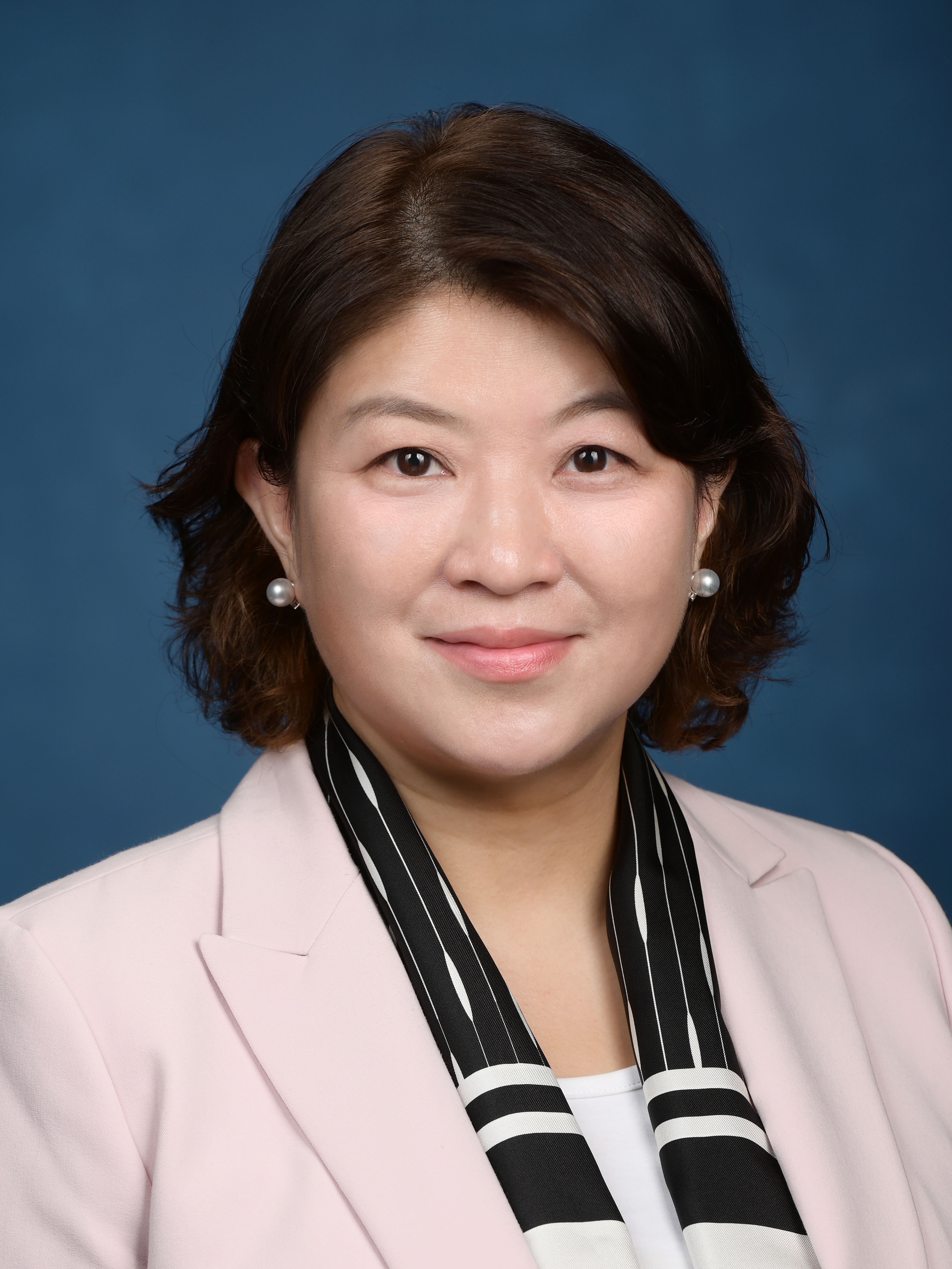
Biography
Dr Lee is the Undersecretary of Health Bureau, the Hong Kong Special Administrative Region since July 2022. She served as the Commissioner for Primary Healthcare immediately before the current position. She is a registered anaesthesiologist and has started her career in healthcare administration since 2008. She has vast management experience in the Hospital Authority, which provides public healthcare services to the 7 million Hong Kong population through 27,000 beds in 43 public hospitals. She was the Head of Patient Safety and Risk Management in Hospital Authority early in her career. She led the Department to identify clinical risks through incident management. She formulated organizational annual risk registration exercise, to inform corporate directions in risk reduction. She acquired hospital operational skills by taking up the position of Deputizing Hospital Chief Executive of the Buddhist Hospital, later the Hong Kong East Cluster Chief Executive, overseeing the operations of the hospitals. Then she moved forwards to be the Director of the Strategy and Planning Division. The scope of her works included strategy setting as well as service, capital and annual planning for the whole Hospital Authority.

Achieving Sustainable Financing for Primary Healthcare: Balancing Public and Private Sectors
Biography
Prof. Peter P. Yuen is Dean of the College of Professional and Continuing Education (CPCE) of The Hong Kong Polytechnic University (PolyU). He is also Professor of PolyU’s Department of Management and Marketing. He received his Bachelor of Arts degree in Cellular and Molecular Biology and Master in Business Administration degree from the State University of New York at Buffalo, USA, and his Doctor of Philosophy degree in Health Economics from the University of Birmingham, UK.
Prior to his appointment as Dean of CPCE, Prof. Yuen held a number of management positions at PolyU, including Associate Vice-President (Management), Director of the Public Policy Research Institute, and Head of the Department of Management. He was also the founding Director of the Doctor of Business Administration programme in the Faculty of Business.
Prof. Yuen’s research mainly focuses on public policy formulation and evaluation, and health services management. He is the Co-Editor-in-Chief of Public Administration and Policy and an Editorial Committee member of Asia Pacific Journal of Health Management. He was also a consultant for the Hong Kong Special Administrative Region (HKSAR) Government and the Bauhinia Foundation on a number of public policy related projects including the West Kowloon Cultural District, Sustainable Built Environment, Subsidised Homeownership, Managed Care in Hong Kong, and Health Systems Reform.
Prof. Yuen is currently the immediate Past Chairman of the Federation for Self-financing Tertiary Education (Hong Kong). He has served as a member of the HKSAR Government Manpower Development Committee, Health and Medical Development Advisory Committee, and the Committee on Self-financing Post-secondary Education. He is a founding Fellow of the Hong Kong College of Health Services Executives, and an Honorary Fellow of the Australian College of Health Services Management. He once served as Vice-President of the Chinese National Institute of Health Care Management Education, and President of the Hong Kong Public Administration Association.
Abstract
This presentation analyzes primary healthcare in Hong Kong from an economists’ perspective. At the macro level, the public-private mix in the financing of primary healthcare services in Hong Kong is compared to that in other countries. It shows that Hong Kong relies heavily on out-of-pocket payment for primary health care services, and that the percentage of funding from government is significantly less than the average spending in countries of similar income level as well as that in lower income countries. It points out that reliance on private out-of-pocket payment for prevention and early detection services is highly undesirable because of the high price elasticity nature of these services, which often leads to underconsumption. At the micro level, the funding method, fees and payment systems of primary care services in Hong Kong are examined, including initiatives recently launched by the government – District Health Centres and Chronic Diseases Co-care Scheme (CDCC). While there are some innovative elements in the CDCC schemes, the bulk of the funding to the services delivered by the Department of Health, the public general outpatient departments and the District Health Centres are based on block-grants, which do not align with outcomes or patients values. Payment systems for private providers do not totally aligned either.

Empowering the Future of Primary Healthcare: Equipping Students for Active Engagement in Policy Development
Biography
Prof. Sally Chan is the third President of the Tung Wah College. Prof. Chan has rich management experience in tertiary institutions. During her terms of service as the Pro Vice-Chancellor (PVC) of the University of Newcastle Singapore Campus (UON Singapore), she successfully led the University to achieve prudent growths in student population and financial capacity. Prior to that, she was the Dean of the School of Nursing and Midwifery of UON in Australia from 2014 to 2019, and she led the School to attain a worldwide ranking of top 47 in Nursing (QS World University Rankings by Subject 2019). The School’s research was ranked well above the world standard and obtained the highest score of 5 in Excellence in Research for Australia for consecutive terms in 2015 and 2018. In 2016, she obtained the UON Vice-Chancellor’s Award for International Engagement, and the UON Faculty of Health and Medicine International Award as a recognition of her achievement in building international relationship for the University.
Prof. Chan is an international renowned scholar in nursing education and research. Her fields of specialisation include mental health care and psychosocial interventions, perinatal mental health and health professional education. Most of her studies are translational research involving interdisciplinary and international collaboration. She has been supported by more than 100 funded studies and has over 400 publications in international healthcare journals and international presentations. She was named by the Journal of Advanced Nursing (JAN) as the top 10 Australia and New Zealand Professors with the highest education-focused citations in 2018. In 2016, she was appointed as the Deputy Director of Priority Research Centre of Brain and Mental Health, University of Newcastle to lead multidisciplinary teams related to brain and mental health research in the University.
Abstract
Strong policy development is crucial for sustainable and fair primary healthcare. This presentation examines innovative educational approaches for equipping future healthcare professionals with the essential skills and knowledge necessary for policy development.
The presentation will emphasize the importance of interprofessional education in understanding healthcare policies and their effect on community health. By integrating policy development into medical, nursing, and allied health programs, institutions can educate healthcare leaders to effectively navigate and influence policy.
This presentation will provide practical examples that illustrate the integration of policy education and collaborative workshops, enhancing critical thinking and effective communication. It will also highlight the role of mentorship and experiential learning in connecting theoretical knowledge with real-world application. By encouraging an informed approach among healthcare students, we can prepare them to contribute to improvements in primary healthcare services globally. As educators, it is essential to equip healthcare professionals with the skills to become both caregivers and policymakers, with a focus on public health outcomes.
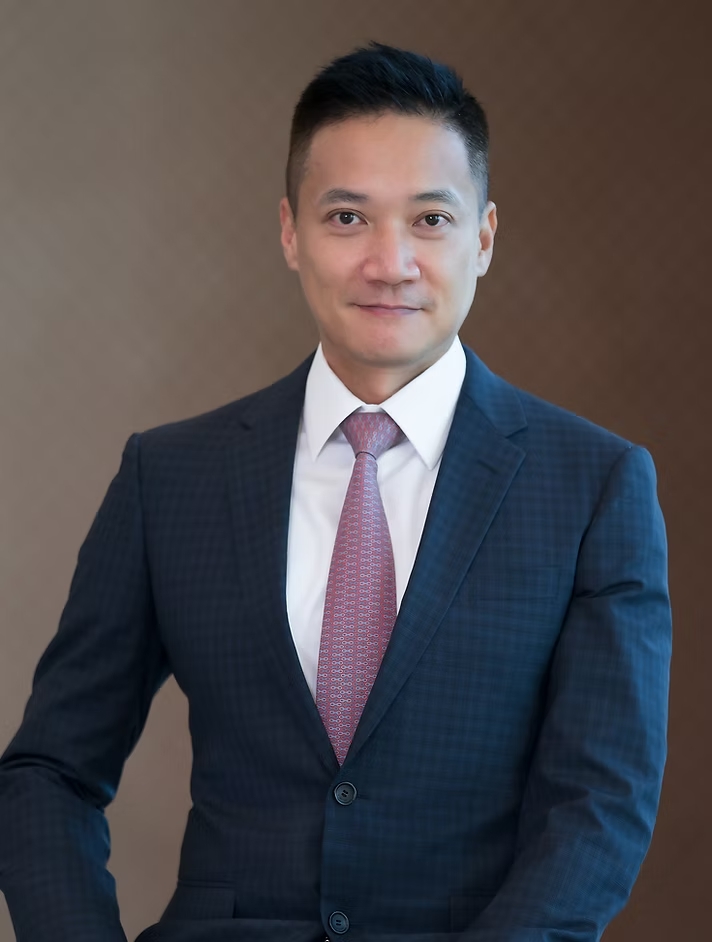
From Local to Global: Lessons in Primary Healthcare Policy Development
Biography
Prof. Samuel Wong is a clinician with training and experience in both Family Medicine and Public Health. He earned his Doctor of Medicine (MD) degree from the University of Toronto and completed his Family Medicine residency in Canada. Furthering his education, he obtained a Master of Public Health (MPH) from Johns Hopkins University in the USA and a Doctor of Medicine (MD) research degree from The Chinese University of Hong Kong (CUHK).
Currently, Prof. Wong serves as the Director of the School of Public Health and Primary Care at CUHK, where he also directs the Thomas Jing Centre for Mindfulness Research and Training. Since July 2019, he has held the position of Associate Dean (Education) at the Faculty of Medicine at CUHK. His international roles include being a Global Faculty Member of the Stanford Medicine Centre for Asian Health Research and Education (CARE) since 2022 and a Selection Committee Member of the National Institute of Health Care Research Professorship in the United Kingdom since 2023. In recognition of his contributions, Prof. Wong was awarded the Faculty of Medicine Outstanding Fellowship in 2021. His research interests are primarily focused on the evaluation and development of mindfulness-based and mental health interventions in primary care, as well as the evaluation and development of primary care services and models, particularly in the context of multimorbidity.
Prof. Wong has published over 370 peer-reviewed papers in international journals has also been successful in securing substantial research funding, with more than 160 million Hong Kong dollars (approximately 20.5 million US dollars, given the exchange rate of 1 US$ = 7.8 HK$) in external competitive research grants and donations for various community interventions aimed at improving mental health and primary care. He played a pivotal role in establishing the Thomas Jing Centre for Mindfulness Research and Training in 2018. Prof. Wong was named a “highly cited researcher 2024” by Clarivate Analytics.
In terms of public service, Prof. Wong has served the Hong Kong SAR Government in various capacities, including as a member of the Steering Committee of the Primary Care Development and other advisory councils and committees related to health and environmental hygiene. He has also been involved in education and accreditation committees for medical and dental councils in Hong Kong. In addition to his academic and research responsibilities, Prof. Wong provides clinical services in Family Medicine for the Hospital Authority as an Honorary Consultant in Family Medicine.
Abstract
Primary healthcare remains the foundation of resilient and equitable health systems. As nations pursue universal health coverage through the advancement of quality primary care, the adoption of global policy frameworks and validated assessment tools becomes essential for guiding and evaluating reform efforts. In this plenary session, Professor Samuel Yeung Shan Wong will examine how internationally recognized frameworks and robust measurement tools can be applied to assess health system performance and inform local policy development. Drawing on research conducted in Hong Kong and insights from the Primary Health Care Performance Initiative, the presentation will showcase practical examples of using validated assessment tools to identify pressure points and prioritize areas for reform. Attendees will gain valuable perspectives on integrating global standards with local context to drive effective primary care transformation.
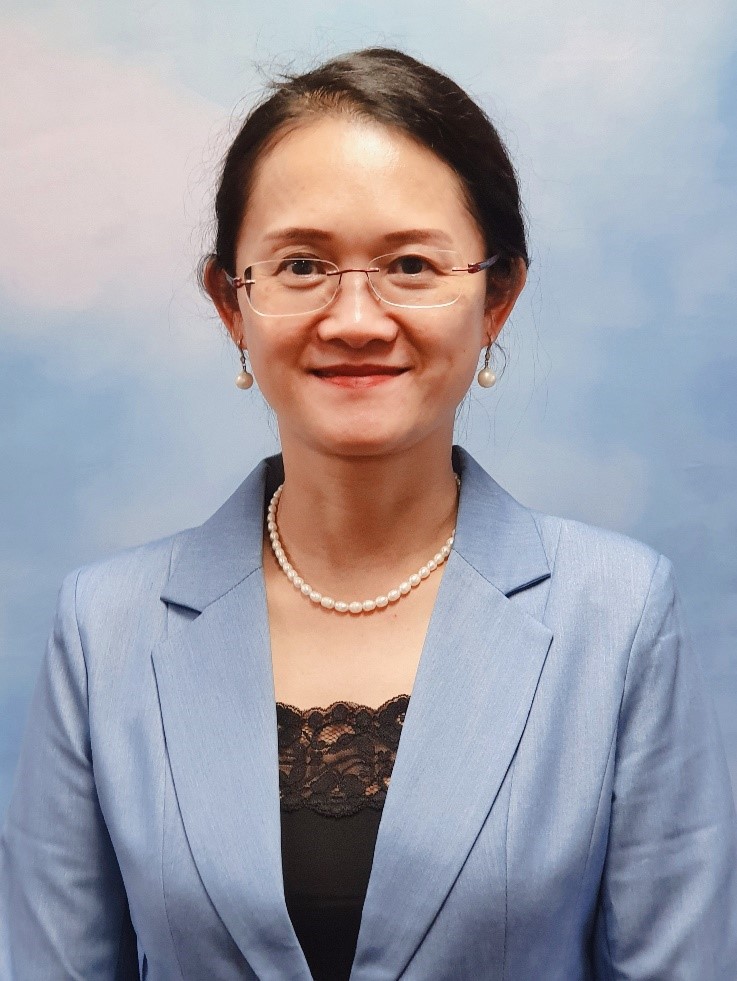
Enhancing Primary Healthcare Policy Development in the Asia-Pacific Region: Building Competencies and Promoting Evidence-Informed Decision-Making
Biography
Dr. Liang is an accomplished academic and leader in health service management. With a focus on transforming health management education and research in Australia and the broader Asia-Pacific regions, Dr. Liang is dedicated to enhancing the effectiveness of health management through evidence-based training and research initiatives.
Dr. Liang is founder of the JCU Health Management Group and also President of the Society for Health Administration Programs in Education (SHAPE), where she plays a pivotal role in shaping health service management training across the Asia-Pacific. Her expertise spans areas such as evidence-based decision-making, health workforce development, organisation management capacity building, healthcare quality, and project management.
An extensive scholar, Dr. Liang has authored numerous publications on leadership, health system development, and management. Notably, she co-authored the widely used evidence-informed textbook Project management in health and community Services: a contemporary guide to practice, now in its 4th edition, with the 2nd edition translated into Mandarin and published in China. This book is a key resource in Master of Public Health and Master of Health Administration programs across Australia.
Abstract
Effective primary healthcare (PHC) policy development in the Asia-Pacific region requires a strategic focus on building leadership and managerial competencies to drive sustainable, system-wide change. Drawing on over 15 years of research and practice in management competency development and healthcare organisational capacity building, this presentation explores how integrating competency assessment and development into PHC strategies can enhance service delivery and overall system performance. By aligning system-level governance with organisational leadership initiatives, health systems can strengthen the capabilities of managers and leaders through an evidence-informed approach. The presentation provides actionable insights and practical examples drawn from real-world initiatives to support policymakers and health leaders in advancing workforce capability, improving service efficiency, and embedding competency-driven approaches in health policy. Ultimately, it argues that investing in leadership development is essential to creating resilient, equitable, and patient-centred PHC systems across the Asia-Pacific region.
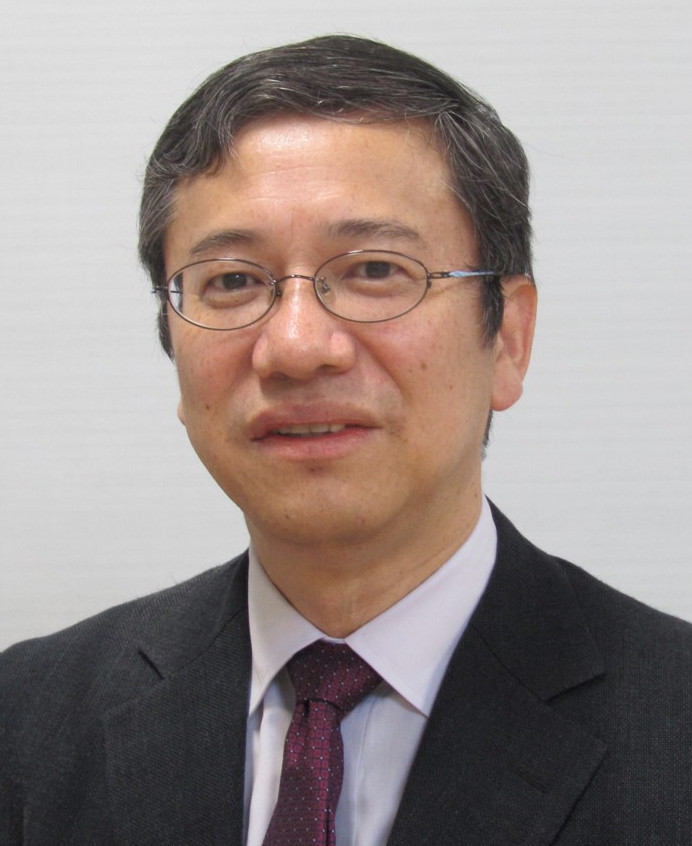
Ageing Society and Primary Health Care (PHC): Trends in PHC in Japan
Biography
Prof. Hasegawa is a Professor and Chair of the Division of Health Policy and Health Service Research Department of Social Medicine at the Toho University School of Medicine of Japan. He had his medical education at the Tokyo University School of Medicine, where he also received his Doctor of Philosophy. He was previously a Resident at the Tokyo University Hospital in Internal Medicine.
He is a member of the Japanese Society of Public Health, Japanese Society of Hygiene, Japanese Society of Transplantation, Japanese Society of Hospital Administration, and Japanese Society of Healthcare Management. He also holds membership of the following specialist councils or committees: Ministry of Labour, Health and Welfare, Committee on Disclosure of Healthcare Information, Committee on the Administration of Healthcare Organisations, Cabinet Office Council for Regulatory Reform, Office for the Promotion of Regulatory Reform and Private Finance Initiative, Japan Council for Quality in Health Care Center for Medical Accident Prevention (vice-chair).
Prof. Hasegawa’s research background includes health policy, health economics, and quality assessment of health care.
Abstract
In older adults, the ability to adapt to new environments declines, and hospitalization can lead to a rapid deterioration in activities of daily living (ADL). Furthermore, medical care and long-term care services are often inseparable, making it essential to develop a comprehensive care system that leverages community resources. In emergency care for older adults, when the patient’s condition or preferences are unclear prior to emergency transport, treatment often does not align with the patient’s wishes, placing a significant burden on the entire system. In Japan, the Community-based Integrated Care System was proposed in 2016 as the basic model for healthcare and long-term care in an aging society, and its implementation is currently underway. PHC is positioned as a frontline service for elderly people living at home. In fact, the importance of outpatient and home-visit medical care has been increasing, with a particularly notable trend in recent years.
Interest in healthcare quality and safety has risen rapidly in many countries since the year 2000. Although much knowledge has been accumulated, most of it comes from resource-intensive acute inpatient care, and it remains necessary to examine whether these insights can be applied to PHC settings such as outpatient and home-visit care. In our research, approximately 20% of patients receiving home health care experienced some kind of incident, many of which were related to insufficient information sharing or communication among service providers. Additionally, only about 20% of hospitals conducted any form of risk assessment for outpatients or patients receiving home health care—an evaluation that is routinely conducted for inpatients. In most hospitals, the scope and items of such assessments remain undefined.
To ensure that PHC services for the elderly—often involving multiple service providers—are safe and of high quality, it is crucial to standardize information-sharing mechanisms at the community level, and to establish and share standardized targets and items for risk assessments. Particularly, outpatient and home health care patients with specific diseases or treatments should be prioritized. Furthermore, to appropriately address emergency situations among the elderly, it is essential to implement systemic reforms to advance care planning (ACP) so that not only the patient’s medical condition but also their preferences can be confirmed in advance and shared among all relevant parties.
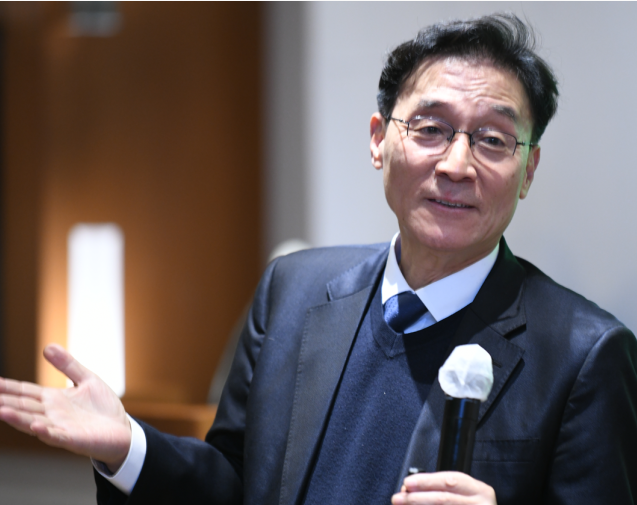
Reforming Korea’s Primary Healthcare Towards an Integrated and Sustainable Model
Biography
Prof. Dongwoon HAN, MD, MPH, PhD (in health service management) is a Professor at College of Medicine, Hanyang University, College of Medicine, and the Chairperson of Global Health and Development. He was also a chairperson of both the Department of Preventive Medicine, College of Medicine, and the Department of Medical Administration at Graduate School of Public Policy. He is also currently the Director of Institute of Health Services Management, Hanyang University. He received a bachelor’s degree in medicine from College of Medicine, Hanyang University College of Medicine, master’s degree (MPH) from Seoul National University, Graduate School of Public Health, and a doctoral degree from The University of Birmingham (UK). Prof. Han was a member of WHO working group for various health related topics including traditional medicine. For many years, he has worked as short-term consultant at many developing countries, Vietnam, Nepal, Cambodia, Iraq, Afghanistan, Peru, Honduras and so on. In his country, he has advised national and local governments on health promotion, health planning, and Official Development Assistant (in Health). Since 2004, he has been working to establish a public health programme using traditional Korean medicine in public health care system. Prof. Han is serving as Director of the National Traditional Korean Medicine Research and Development Centre. From 2010 to 2012, he had also directed a research team on the evaluation of Korean Case Payment System (KCPC) funded by the Health Insurance Review Agency (HIRA).
Abstract
Background: South Korea's healthcare system has long relied on specialist-centered care, with limited gatekeeping by primary care providers. This has contributed to overutilization of tertiary hospitals, inefficiencies in chronic disease management, and rising healthcare expenditures. Recognizing these issues, the Korean government has recently initiated reforms aimed at strengthening primary healthcare (PHC) as a foundation for an integrated and sustainable health system.
Methods: This presentation draws on a comprehensive review of current PHC policies, government documents, and stakeholder debates, including pilot programs, payment reforms, and institutional restructuring efforts. Particular focus is given to the evolving roles of clinic-based physicians, adjustments to the health insurance fee schedule (particularly service-type-based conversion indices), and the integration of PHC into broader healthcare governance.
Results: Key reform strategies include the rollout of PHC innovation pilot projects in select regions, development of team-based care models, expanded family doctor systems, and payment reforms linking reimbursement to health outcomes. The government seeks to reclassify clinics into “general” and “specialist” types, reduce unnecessary high-cost services, and enhance chronic disease management at the community level. Central to the reforms is a shift in the reimbursement system using differentiated conversion indices by service type, which enables targeted fee adjustments for specific procedures. While this aims to reduce overuse and redirect funding toward tertiary hospitals, it has raised concerns about equity, financial viability of clinics, and access to specialized care in local settings.
Conclusion: South Korea’s efforts to restructure its primary healthcare system represent a significant shift toward preventive, person-centered care. However, achieving sustainable reform will require not only strategic resource reallocation but also trust-building with primary care providers, strengthened PHC workforce development, and clearer role definitions across the healthcare delivery system. These lessons are highly relevant for countries across the Asia-Pacific region facing similar challenges in aligning health system efficiency with equity and continuity of care.

Building Resilient Primary Healthcare Systems in the Asia-Pacific Region: Lessons from Research and Practice
Biography
John has over 40 years' senior health management experience including executive roles at Eastern Health, General Practice Victoria and Networking Health Victoria. He is currently a Director – Australian Centre for Leadership Development, and Unit Chair in Healthcare Operations and Healthcare Financing at Deakin University – School of Medicine, Faculty of Health. He is also Chair of the Mental Health Professional Network.
Former roles include Deputy Chair of Latrobe Regional Hospital and Chair of the Quality Committee of Latrobe Regional Hospital. John holds a Bachelor of Arts (Clinical Psychology) and a Master of Health Planning, is a member of the Australian Institute of Company Directors and a Fellow of the Australasian College of Health Services Management, and Australian Institute of Management. John has an extensive skill base in leadership, strategic planning, clinical and corporate governance to lead the organisation.
Abstract
In 2024, The Center for Asia-Pacific Resilience and Innovation maintained that Asia-Pacific health systems remain vulnerable but, despite inherent political and economic variations, many nations in the Asia-Pacific can offer lessons for the global community. Four years post COVID-19 pandemic, Asia-Pacific countries’ health care systems have demonstrated critical lessons in building adaptable primary healthcare systems that have aided recovery from the stresses of pandemics, climate events, cyberattacks and systemic workforce shortages. The threats have not disappeared, so what are the lessons that can be learned leveraging research and recent reforms that can enable better responses to these crises? Can regional collaboration enable countries to learn from each other how to better address three interconnected priorities relating to the essential implementation of 1) enabling policies and resourcing, 2) early detection systems, and 3) capability-building, thereby achieving readiness to respond to emerging threats?

Advancing Health Equity in Primary Healthcare: A Social Justice Approach
Biography
Eleanor is a Professor in Nursing and Associate Dean International, and Engagement, Faculty of Health and Environmental Sciences, Co-director of the AUT Centre For Migrant and Refugee Health Research (CMRHR), has a Ph.D. in Medical Anthropology, from HKU, as well as being a nursing alumna of AUT. She has 30 years of experience working in the international university sector, predominantly in Asia (the Chinese University of Hong Kong, National University of Singapore, University of Hong Kong campus Shenzhen) and Australia (Head of Nursing, RMIT, and Edith Cowan University), as well as more recently in East Africa, (Aga Khan University). Her research and teaching focus on health equity, human rights, and social justice has spanned nursing, public health, and social sciences academic disciplines. A key focus of her work is with international PHD students.
She has been focusing on social impact, with community outreach projects and NGO board memberships as well contributing to the set up of steering committees, hosting a re-launch event for the CMRHR , building relationships and partnerships with key community organizations, and writing joint publications and proposals.
Abstract
This presentation, Advancing Health Equity in Primary Healthcare: A Social Justice Approach, explores the critical role of primary healthcare in addressing health disparities and promoting equitable health outcomes. Grounded in principles of social justice, the session examines how structural inequities—such as poverty, racism, and marginalisation—both shape access too, as well as determine health care outcomes. Current research drawn from New Zealand with refugee populations, older Chinese and Fijian India migrants will be drawn upon to suggest novel evidence-informed strategies. The presentation highlights the importance of culturally responsive, community-engaged and driven , and policy-driven interventions. Attendees will gain insights into practical approaches for integrating equity into everyday practice, empowering healthcare professionals to become active agents of change within their systems and communities.

Transforming Primary Healthcare in Hong Kong: Strategies for Equitable and Comprehensive Care Delivery
Biography
Over the past three decades, Ms. Cheung has accumulated extensive experience in the development of community and primary health care in Hong Kong, and has participated in the development and implementation of many service plans and projects, especially in chronic disease management and patient empowerment. Over the years, Ms Cheung had made many improvements to improve the quality of community and primary health care services, especially in the management and processes of services, thereby increasing the efficiency of services.
In the area of nursing education, Ms Cheung serves as a guest lecturer/part-time tutor/external consultant for nursing education training programmes at a number of local universities in Hong Kong. She has also contributed to the development of the Hospital Authority’s Post-Registration Certificate Programme in Primary Health Nursing and the core competencies for primary health care nurses.
Contributions to hospital service quality and safety management include hospital accreditation, quality and standards, risk management and incident management, nursing training and development, outpatient services and patient service management.
Abstract
Hong Kong’s primary healthcare (PHC) system faces mounting challenges, including an aging population, rising chronic disease burdens, professional staff shortage and ever-increasing community demands of healthcare service. This presentation outlines transformative strategies to achieve equitable and comprehensive PHC, drawing on Hong Kong’s Primary Healthcare Blueprint (2022).
Key initiatives include:1. District Health Centres (DHCs): A prevention-oriented, family-centric model integrating medical and social services through public-private partnerships (PPPs). DHCs/DHCEs in 18 districts offer health promotion, health education, chronic disease management and community rehabilitation, targeting underserved populations.2. Financial Accessibility Schemes: The Elderly Health Care Voucher Scheme and Chronic Disease Co-Care Scheme (CDCC) subsidize private care, though challenges persist in redirecting vouchers from episodic to chronic care.3. Technology Integration; Telemedicine and AI diagnostics enhance early detection and resource efficiency.4. Workforce and Service Integration: multidisciplinary teams in Community-based Primary Health Centers and expended Chinese Medicine Services address holistic needs.
Equity gaps persist, further directions emphasize sustainable financing, global collaboration, and strengthening the family doctor model thorough the Primary Care Register. By leveraging policy agility, technology, and community engagement, Hong Kong can transition toward a resilient PHC system that balances innovation with equity – ensuring health for all in alignment with the Alma-Ata Declaration.

Promoting People-Centred Primary Care: Building a Framework for Policy Development -reflections from UK experience
Biography
Joanne is an academic GP committed to excellence in academic primary care at the heart of the design and delivery of quality primary care. Primary care is the bed rock of the NHS, and is underpinned by a discipline of academic primary care which delivers the workforce, research evidence and strategic vision for practice and policy.
Joanne graduated from Liverpool Medical School in 1997, and started out planning a career in public health medicine. A Masters in Public Health rekindled her interests in the professional, clinical and academic challenges of developing person-centred healthcare. She returned to General Practice and successfully applied for doctoral funding from the NCCRCD (the precursor to NIHR) to look at person-centred management of distress in terminal illness. Following her PhD, she worked in Manchester, Liverpool and Warwick developing a portfolio of work on Primary Care redesign based on the principles of medical generalism (whole person medical care). Her work has been supported by fellowships from the NIHR (including a Clinical Lecturership at Manchester, and a Clinician Scientist Award at Liverpool). Joanne joined Hull York Medical School in 2017 to establish the Academy of Primary Care - championing innovative scholarship driving excellence in primary care provision.
Abstract
International research shows that strong primary care delivers efficient, effective and equitable healthcare. All three outcomes are priorities for health systems around the world given the urgent demographic, social and healthcare changes we are all experiencing. We need strong primary healthcare, now more than ever.
But what does that look like, in practice and on the ground? Using examples from our work in the UK, I will start by outlining our 3 biggest challenges – burden, burnout and imbalance. Before describing 3 examples of solutions we have been exploring: tackling problematic polypharmacy (burden), the primary care workforce (burnout) and public expectations (imbalance).
I’ll conclude by inviting us to think about the opportunities for an international community of practice to collectively address these challenges.
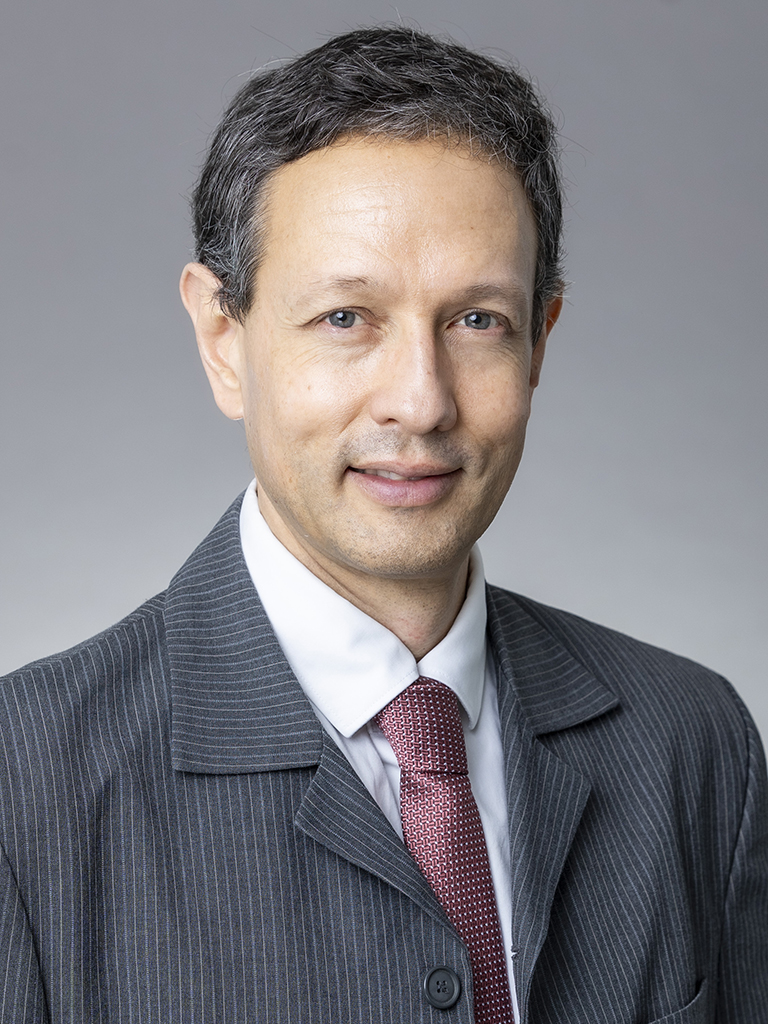
Multi-stakeholder design and assessment of primary healthcare policies: Insights from the Primary Health Care Performance Initiative (PHCPI) and the collective impact approach
Biography
Dr Luis Gabriel Bernal Pulido is Principal Lecturer at the School of Public Health and the Department of Family Medicine and Primary Care of the University of Hong Kong. Before joining the University, he worked for almost 20 years in clinical practice in primary care organisations in Colombia, particularly serving marginalised and migrant populations. He has been faculty of several Schools of Medicine and Health Sciences in Colombia for nearly 2 decades, where he was also head of Family Medicine residency programmes.
He has served in the Colombian Government as National Director of Human Resources for Health at the Ministry of Health; member of the National Public Health Strategic Committee that prepared and implemented the response of the Colombian health sector to the COVID-19 pandemic; and Representative of the Intersectoral Commission for Human Resources for Health in the National Intersectoral Comission of Quality Assurance in Higher Education of Health Disciplines at the Ministry of Education.
He has worked as international consultant for the Results for Development Institute, the World Bank, the Pan American Health Organization, and the United States Agency for International Development, on topics related to the strengthening of Primary Health Care and Human Resources for Health, in Colombia, Latin-America, Africa and Asia-Pacific, facilitating communities of practice, assessing the performance of primary health care at country level, and developing health facility performance assessment tools.
Abstract
Drawing on experiences and methods of the Primary Health Care Performance Initiative (PHCPI), a global initiative that pioneered innovative conceptual frameworks and tools to measure and improve Primary Health Care (PHC) performance worldwide; together with applications of the collective impact approach, which promotes cross-sector collaboration and shared accountability towards the achievement of common goals, this talk delves into the importance of multi-stakeholder engagement in win-win relationships to ensure effective, equitable, and sustainable PHC policy development, implementation and evaluation.
Key elements include the identification of relevant stakeholders, strategies to meaningfully engage them and get political will, and the role of data for decision-making and comprehensive assessment in PHC policy development and implementation. Exemplars cases will illustrate how multi-stakeholder collaboration has led to measurable progress in PHC performance, such as service delivery optimization and better health outcomes. Challenges, including power dynamics and conflicting priorities, will also be addressed, as well as ways to overcome them.
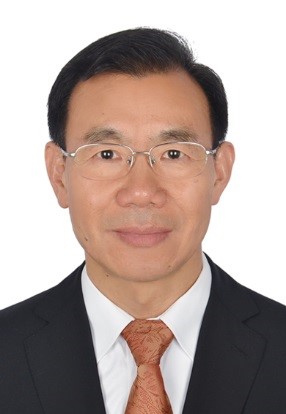
Service Status of Primary Healthcare Institutions in the Development of Effective and Equitable Primary Healthcare Policies
Biography
MD, Ph.D., Professor, Chief Forensic Physician, Doctoral Supervisor. Currently serving as Vice President of Guangzhou Medical University. A core member of the third batch of Huang Danian-style teacher teams nationwide. Director of the Key Laboratory of Philosophy and Social Sciences of Guangdong Universities for "Health Governance Based on Big Data Utilization". Outstanding Talent in Medical and Health Care (General Practice) of Guangzhou. Visiting scholar at the University of Wales in the UK, and the University of Maryland in the USA, and Professor (by courtesy) at the Chinese University of Hong Kong. He has long been engaged in teaching and scientific research in forensic medicine and general practice, as well as health management and related research. He has published more than 100 papers in domestic and foreign journals such as Cell Reports and Cell & Bioscience. He has edited 8 textbooks and works, and also has served as an associate editor, associate chief translator, and participated in compiling more than 20 other works on general practice, primary care, public health and forensic medicine. He has presided over and participated in more than 20 national and provincial scientific research projects, and has won 5 scientific and technological awards, including the First Prize and Third Prize of Guangdong Province Science and Technology Progress Award, and the Second Prize of Science and Technology Progress Award of the State Education Commission.
Abstract
As the core carriers of primary medical and public health services, the efficiency and equity of primary healthcare institutions directly impact the achievement of universal health goals. Since the new round of deepening healthcare system reforms, Guangzhou has adhered to the principles of “ensuring basic services, strengthening grassroots capacity, and establishing institutional mechanisms” to advance comprehensive reforms in primary healthcare. However, deep-rooted contradictions in resource allocation and service efficacy remain unresolved systematically.
This study aims to analyze the service status, operational efficiency, and equity of primary healthcare institutions in Guangzhou through multidimensional perspectives, identify core bottlenecks constraining grassroots service capabilities, and propose integrated reform pathways that balance efficiency enhancement and equity optimization. The goal is to support the construction of a balanced and efficient primary healthcare service system.
Based on data from 2009 to 2019, this study employs Data Envelopment (DEA) to evaluate the efficiency of primary healthcare reforms in Guangzhou. Input indicators include the number of healthcare professionals, hospital beds, and general practitioners, while output indicators encompass total outpatient visits and chronic disease management cases. Additionally, Lorenz curves and Gini coefficients are used to quantify the equity of human and material resources across population and geographic distributions.
In 2019, the number of primary healthcare institutions increased to 356, with a 77.68% growth in healthcare professionals and 6.54 hospital beds per 1,000 populations. Family doctor contract coverage reached 35.25%, and primary care visits accounted for 33.48% of total healthcare utilization. Innovative models such as “HuaDu One-Yuan Medical Service” and “ZengCheng Dean-led Hospital Management Model” (Provide financial security in accordance with the standards of Category I public welfare institutions, and implement performance management in accordance with the standards of Category II public welfare institutions) emerged as nationally replicable practices. In 2019, the average comprehensive efficiency of primary healthcare institutions was 0.755, with only 27.27% operating at optimal efficiency. Dynamic analysis from 2009 to 2019 revealed declines in total factor productivity for community health service centers and township hospitals during 2013–2016 and 2017–2018. While the Gini coefficient for human resources was below 0.4, geographic inequities were pronounced: healthcare professional density in northern mountainous areas was one-third of central urban regions, and the geographic Gini coefficient for beds reached 0.731 in 2016. Family doctor service accessibility in remote areas was less than half that of urban zones. Disparities in equipment coverage (e.g., CT scanners and ultrasound devices) persisted in rural townships like Conghua and Zengcheng, coexisting with underutilized equipment and staff shortages.
Primary healthcare reforms in Guangzhou have achieved significant progress in resource expansion and service volume. However, the contradiction between “scale expansion and efficiency lag” and regional resource imbalance remains critical. It is recommended that strategies such as targeted resource allocation, technology-driven innovation, management optimization, and equity enhancement be adopted to promote the transformation of grassroots medical care from “quantitative increase” to “quality and efficiency coordination”.

Building a Sustainable Primary Healthcare Workforce: Policy Approaches and Best Practices
Biography
An international award-winning nurse academic, Liz has a strong interest in Primary Health Care nursing. In particular, her PHC research expertise relates to the nursing workforce in primary care, chronic and complex disease and lifestyle risk factor reduction. Additionally, Liz has undertaken research around the nursing academic workforce, research training and teaching and learning in nursing. She has extensive experience in mixed methods research, as well as having led numerous systematic reviews.
In 2018, Liz was inducted into the Sigma Theta Tau International Nurse Researcher Hall of Fame in recognition of the significant and sustained national / international recognition of her work and its positive impact on the profession and the community. In 2019, she was the first nurse to be awarded the Bridges-Webb medal by the Australasian Association for Academic Primary Care. In 2020, Liz was named in 100 Outstanding women nurse and midwife leaders by the Women in Global Health (https://yonm.org/).
At the University of Wollongong, Liz plays a leadership role developing PHC nursing research, as well as engaging multidisciplinary academics within Primary Health Care to address the growing challenges in providing health care within the community.
Abstract
As we face population aging and an increase in chronic conditions, robust primary care systems are necessary to ensure efficient, effective, and equitable healthcare. The workforce is a vital component of strong primary care systems. As the need for primary care continues to grow, so too do the demands on the workforce. This necessitates planning and effective policy-making to ensure that the workforce is well-supported. This presentation will examine the key challenges in building and sustaining the primary care workforce to ensure strong primary care.
Drawing on examples from the Australian context, the presentation will discuss policy shifts aimed at expanding the primary care workforce, as well as explore how policy is evolving to enhance the multidisciplinary nature of primary care. The presentation will use examples from our research to highlight best practices, as well as the barriers and facilitators faced in building primary care teams. This will provide an opportunity for attendees to reflect on practical approaches to integrating these considerations into their practice and contribute to developing solutions that support the workforce in their context.

Gaps in Research in Primary Healthcare Policies
Biography
Prof. Rick Kwan is the Associate Dean (Programmes) and Professor of the School of Nursing, Tung Wah College. His research area focuses on gerontology nursing, specialising in applying e-health technology (e.g., virtual reality and wearable devices) to promote the health of older people with cognitive impairment and frailty. In education, he specialises in using information and communication technology (e.g., virtual reality) to promote teaching and learning experiences and efficacy. He is active in advocating professional development in nursing and gerontology. He is the founding president of the Pi Iota At-large Chapter of Sigma Nursing, Regional Coordinator (Asia) of Sigma Nursing, council member of the Hong Kong Association of Gerontology, co-opted member of the Nursing Council of Hong Kong, Associate Editor of European Review of Aging and Physical Activity, and specialist of Hong Kong Council of Accreditation of Academic & Vocational Qualifications. He published approximately 100 articles in international SCI journals and book chapters. He led or participated in more than 40 funded research projects at a value of over 60 million Hong Kong Dollars. He led the development of the virtual reality therapeutic programmes leading to more than 5 awards (e.g., ICT award), one patent, and many interviews by media. His academic achievements were also recognized by the Distinguished Educator in Gerontological Nursing, National Hartford Centre for Gerontological Nursing Excellence in 2018, the Emerging Research/Scholarly Award by Sigma in 2020, the Alumni Award, School of Nursing, PolyU in 2022, the Fellow of Hong Kong Academy of Nursing in 2022, Research Excellence Award, Tung Wah College in 2023, Fellow of American Academy of Nursing in 2024.
Abstract
Over the past five years, the Hong Kong government has implemented various primary healthcare policies, including the Primary Healthcare Blueprint, aimed at enhancing community-based services and integrating healthcare delivery. As the city seizes increasing healthcare demands and a shifting policy environment, many new questions could not be answered by the existing body of knowledge. Therefore, understanding the research gaps is essential for improving service delivery and patient outcomes.
The presentation focuses on three key areas: the integration of mental health services, digital health adoption, and interdisciplinary collaboration. First, we examine the current policies aimed at integrating mental health into primary healthcare. Despite significant initiatives, there is a notable lack of comprehensive evaluation studies and patient-centric research, hindering the assessment of service effectiveness and accessibility.
Next, we address the growing adoption of digital health technologies, including artificial intelligence, robotics, and extended realities. While these innovations have the potential to enhance healthcare delivery, research on user experiences and effectiveness across diverse populations remains limited. This gap raises concerns about equitable access and the potential for a digital divide.
Finally, we discuss the importance of interdisciplinary collaboration in enhancing primary healthcare. Although collaborative practices are recognized as vital to effective care, there is insufficient exploration of effective collaboration models and the dynamics within interdisciplinary teams. This lack of research may impede the ability to implement comprehensive health solutions.
In conclusion, this presentation highlights the significance of addressing these research gaps to inform policy development and improve healthcare outcomes in Hong Kong. By fostering a deeper understanding of these areas, we can better meet the needs of the population and create a more effective primary healthcare system. Attendees will be encouraged to engage in discussions on potential research directions and collaborative efforts moving forward.
Acknowledgement:
The conference is partially supported by a grant from the Research Grants Council of the Hong Kong Special Administrative Region, China (Project No.: UGC/IIDS24/H02/24)